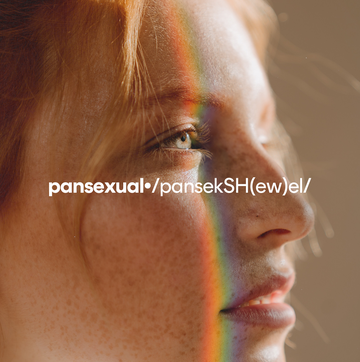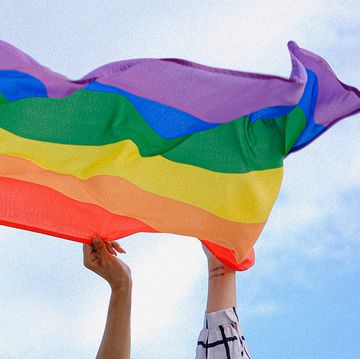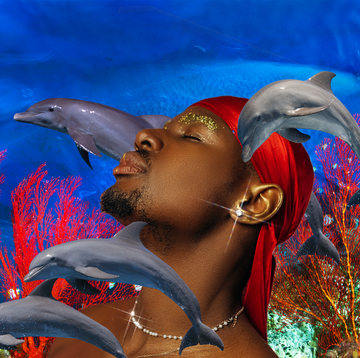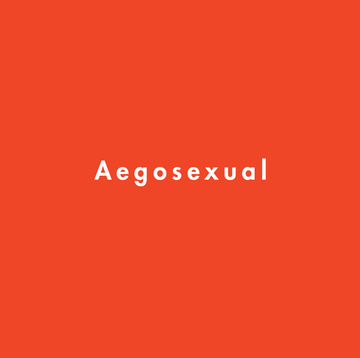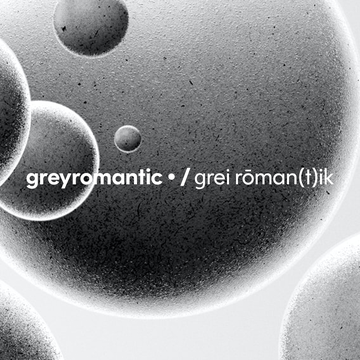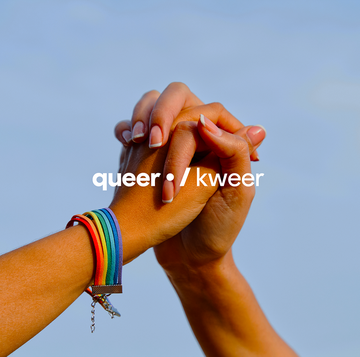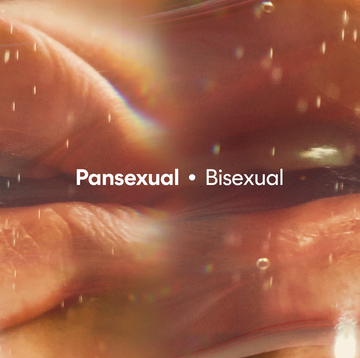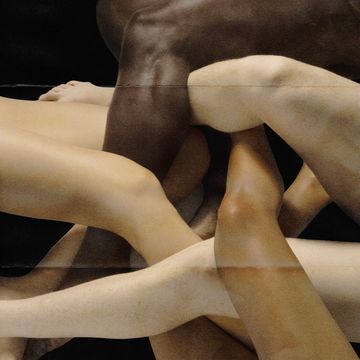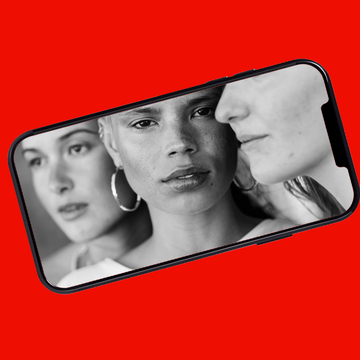As more people come to recognize that monogamy is by no means the only legitimate relationship dynamic leading to a pleasurable life full of loving connections, they want to understand the non-monogamous options available.
But between the many forms of non-monogamy like an open relationship, polyamory, and ethical non-monogamy, it can be a lil intimidating to take that first step into the unknown. Especially considering the absence of non-monogamous relationship models in the public eye.
I first dipped my toe into the world beyond monogamy by opening my relationship with my husband more than a decade ago. Since then, I’ve been asked a million and one questions about what it actually means to be in an open relationship.
So if you’re curious (and let’s be honest, you’ve landed on this article for a reason), let’s dive into what it means to be in an open relationship.
What is an open relationship?
Open relationships tend to look like casual, short-term hookups that take place outside a core relationship.“It’s one in which a single partner or both are able to explore sex and intimacy with other partners,” says Daniel Saynt, founder of The New Society for Wellness (NSFW), a sex and cannabis-friendly private members club in New York City.
This is distinct from polyamory, which allows for multiple committed, romantic relationships to take place at once. And because polyamorous people tend to emphasize deeper connections, a polyamorous relationship is not considered to be under the open relationship umbrella.
Meanwhile, some would put swinging—couples swapping partners sexually, usually at dedicated events—into the open relationship category, while others would not. The language around non-monogamy continues to evolve, and individuals may subscribe to their own definitions.
Basically, it’s important to ask how people define an open relationship for themselves, especially if you’re looking to get it on with them.
Can a single person call themselves open?
If that’s the label that resonates with you, absolutely. “A single or unpartnered person can say they prefer open relationships,” says Ebony Hagans, the polyamory educator behind MarjaniLane. “But if they are not in a relationship at the time, the application can be confusing.”
“Stating you are open while dating is a great way to find someone else who might feel the same way,” says Saynt. “Being upfront early about what freedoms you expect will help save you a lot of time when looking for another open heart to share your time with.”
In addition to saying you’re “open,” Hagans also suggests using other labels like swinger, relationship anarchist, or monogamish to help indicate non-monogamous sexual preferences too.
So no matter what word you pick, it always helps to explain exactly what you mean and what you’re looking for, and identifying as open can be a great way to indicate you want a relationship that allows for extramarital sexy times. Just know polyamorists looking for a serious connection might steer clear.
Does being in an open relationship mean you hate monogamy?
Despite how often I get this question, it shocks me every time. In short, no, being in an open relationship is not a statement on monogamy, just like my choice to eat spaghetti bolognese is not a comment on someone’s chicken parm.
“It is just an orientation that fits some of us better,” explains Hagans. “The same way some people feel monogamy is an identity is the way some of us feel who navigate open relationships.”
People can find themselves in open relationships for any number of reasons and not always in a way that honors their true desires—often when trying to appease a partner. But for many of us, open relationships facilitate an honest sexual expression of the self.
What are the rules in an open relationship?
It’s less about “rules” and more about boundaries, communicated expectations, and transparency, says Hagans.
Boundaries may look like only having sex together, as in the case of strict swingers, or only have one day a week where extramarital activities are allowed. For some, a don’t ask/don’t tell policy is necessary to make it work.
“In the end, it’s up to you and your partner to decide what works best for your relationship,” says Saynt. And remember, what you and your partner(s) need will most certainly change over time, which is why active communication is necessary—which is also true for monogamy too.
Do you experience jealousy? How does it get handled?
“Just because you are open or in the lifestyle doesn’t mean you don’t experience jealousy,” says Claudia Aguirre, vice president of Luxury Lifestyle Vacations (LLV), a travel brand curating sophisticated sex-positive travel experiences.
As for how to handle jealousy, there is really only one thing for it: “I can’t say this enough. Communicate, communicate, communicate. Talking things over can diffuse a jealousy issue.” Attending workshops like LLV’s Newbie Seminars, which include how to discuss and navigate jealousy with a partner, are a great way to learn about jealousy before you’re mired in the emotion of it.
Remember, too, that jealousy is not a straightforward monster. “Open relationships may not exactly cause jealousy, but they create the opportunity for insecurities to fester,” Hagans notes. She suggests combatting jealousy by communicating how you feel, working on your insecurities yourself, giving and receiving validation to and from your partner, offering patience, and setting realistic boundaries.
At the other end of the spectrum from jealousy is compersion, a word that is as of yet not included in the dictionary, but widely used by non-monogamists nonetheless. Compersion is the joy experienced by the happiness of others, the thrill of your partner’s pleasure at the hands of someone else.
In the same way that jealousy can be overcome with time and practice, so can compersion be developed. Ultimately, if your jealousy is trying to say that an open relationship isn’t for you, then listen to it. Open relationships are absolutely not for everyone.
How to deal with unexpected attachment, aka what happens when you catch feelings?
As stated, most couples design an open relationship with the agreement that no new romantic bonds will be formed. But humans gonna human, and catching feelings can be inevitable. “It’s important to understand your biology when exploring sexually,” says Saynt. “When you meet someone new and form a connection you may experience a spark. This ‘new love energy’ may feel like something more than intended as your brain pushes serotonin and oxytocin into your body, creating a high we may not always feel with our core partner.”
Also known as “new relationship energy,” it can be intoxicating, but it is also avoidable. “Usually I prevent this by setting boundaries with how much time we spend together, activities we do and accepting the fact I can like someone and not date them,” advises Hagans.
“However, if it is something you are struggling with and you are navigating a monogamish relationship, you may need to discuss the options of polyamory with your partner.”
Whatever is happening, regular honest communication should be taking place throughout so your partner isn’t suddenly finding out that you’ve developed feelings for a lover—they should be told as soon as that first inkling comes along.
How do you challenge the socially ingrained belief that we are supposed to be with one person, and one person only?
As happily open as I am now, it took years of undoing internalized shame about not being “normal.” And after realizing that behaving monogamously wouldn’t actually make me a monogamous person, I decided to instead accept who I am, and acknowledge that there is nothing abnormal about me or anyone else for having infinite room for love in my heart.
“Whether I am dating one person or four people, I am always polyamorous and proud,” says Hagans. To help change society's impression though, Hagans is not shy about past relationships, and speaks with family and friends about it so they are educated and aware.
“The more voices sharing, the more these relationships become mainstream,” adds Saynt. The more people willing to live their truth in the open, the more people will see that they too don’t need to subscribe to monogamy just because that’s what everyone else seems to be doing.
How does being in an open relationship bring you and your partner closer?
“I’ve often said that an open relationship can make a good marriage into a great marriage, and an unstable marriage into a disaster,” says Pepe Aguirre, Aguirre’s partner in love and LLV. Open relationships work well when it’s an adventure embarked upon together by a couple looking to grow their relationship, and not so well when it’s introduced to fix a problem. Opening a relationship is almost like taking on a new hobby together, but instead of knitting sweaters, you’re having sex with other people.
That heightened level of communication also ends up bringing couples closer together. “You talk more, discuss more, and have more of your desires and fantasies out on the table,” Saynt says.
And for some, an open relationship allows couples to focus on other aspects of their partner. “Sex doesn’t become the responsibility of just one person, giving you a more satisfying relationship.” Even taking the time to process jealousy can be beneficial, as doing so helps eradicate insecurities, bringing lovers closer together.

Ali Wunderman is a travel and wildlife journalist. Her work can be found on Forbes, HuffPost, VICE, and Lonely Planet.




